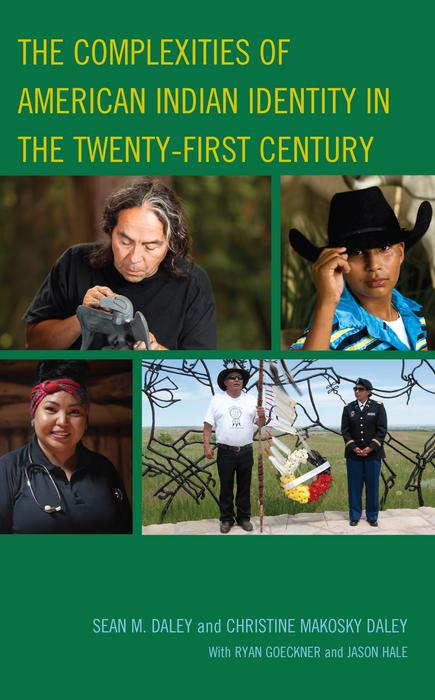A new book culminating five years of research offers one of the most comprehensive looks at contemporary Native identity in the United States to date.

Credit: Roman & Littlefield
A new book culminating five years of research offers one of the most comprehensive looks at contemporary Native identity in the United States to date.
Drawing on more than 700 surveys and interviews of individuals self-identifying as Native, The Complexities of American Indian Identity in the Twenty-First Century (Roman & Littlefield, 2023) offers a nuanced perspective on an often fraught question in contemporary society: “Who is an Indian?”
“An Indian is an individual, growing up in the midst of multiple cultures and worldviews, with many different influences and views on what it means to be a Native person in the United States in contemporary society,” write authors Sean M. Daley and Christine Makosky Daley, professors in Lehigh University’s College of Health and researchers with the university’s Institute for Indigenous Studies.
In other words, it’s complicated. And it’s important to center the perspectives of Native people in discussing Native identity—which are missing from much of the existing research literature.
The book examines questions of Native identity at a critical inflection point in the United States. Between 2010 and 2020, the Census Bureau reported an 85% increase in people identifying as American Indian and Alaska Native, coinciding with a national reckoning over the country’s treatment of people from minoritized racial and ethnic groups.
While highlighting several relevant trends that emerge from the data, the authors stop short of drawing broad conclusions regarding collective Native identity or along particular demographic lines. Rather, the book aims to provide space for individuals to describe in their own words the most important facets of their Native identities.
“We decided that the most important information in these interviews and surveys was tied to the words of our participants. We did not want to reduce their views on their own identities into a mere statistical measure,” the Daleys write.
Hilary Weaver, professor emeritus at University of Buffalo, said in a review that the book “makes an important contribution to a literature of Indigenous identity that had previously been primarily theoretical or grounded in personal experience without systematic organization or analysis.” The book, she said, presents “a clearly articulated multitude of voices describing complex, nuanced, and sometimes contradictory perspectives on Indigenous identity.”
“At last! A detailed report illuminating the demographic, geographic, and cultural characteristics of the diverse category of tribal citizens and non-citizens who identify as American Indian or Alaska native,” Eva Garroutte, research professor of sociology at Boston College, said in a review. “Grounded in many hundreds of qualitative and quantitative interviews, this welcome addition to the research literature also invites its participants to discuss what lies behind their shared identity assertion.”
The book will benefit the public’s understanding of the complexities of Native identity while also informing policymakers and other researchers’ approaches to understanding Native cultures. Many grant applications and publication reviewers continue to insist on what the authors view as outdated validators of Native identity, such as tribal enrollment cards or Certificate of Degree of Indian Blood, the Daleys said.
“There is no question that can be asked that tells you if your participants are really Native,” the authors write. “There is no scale that can adequately measure Indigeneity because there is no one way to be Indigenous.”
Christine Makosky Daley is a professor and chair of community and population health at Lehigh University whose primary area of research interest is reducing American Indian health disparities. She is co-director of the American Indian Health Research and Education Alliance, a 501(c)(3) not-for-profit organization dedicated to improving health and educational attainment in American Indian communities through quality participatory research and education.
Sean M. Daley, an associate professor of community and population health and director of the Institute for Indigenous Studies at Lehigh University, is an applied sociocultural anthropologist and ethnographer whose research lies primarily at the intersections of religion, spirituality and health. He has also worked in the areas of Native law and policy, identity, education and the environment.
They authored the book with Ryan Goeckner and Jason Hale. The research team included Charley Lewis (Paiute/Navajo), a senior research scientist in the Institute for Indigenous Studies; and Joseph Pacheco (Quechua/Cherokee), an assistant professor in Lehigh University’s Department of Community and Population Health and faculty member in the Institute for Indigenous Studies.




